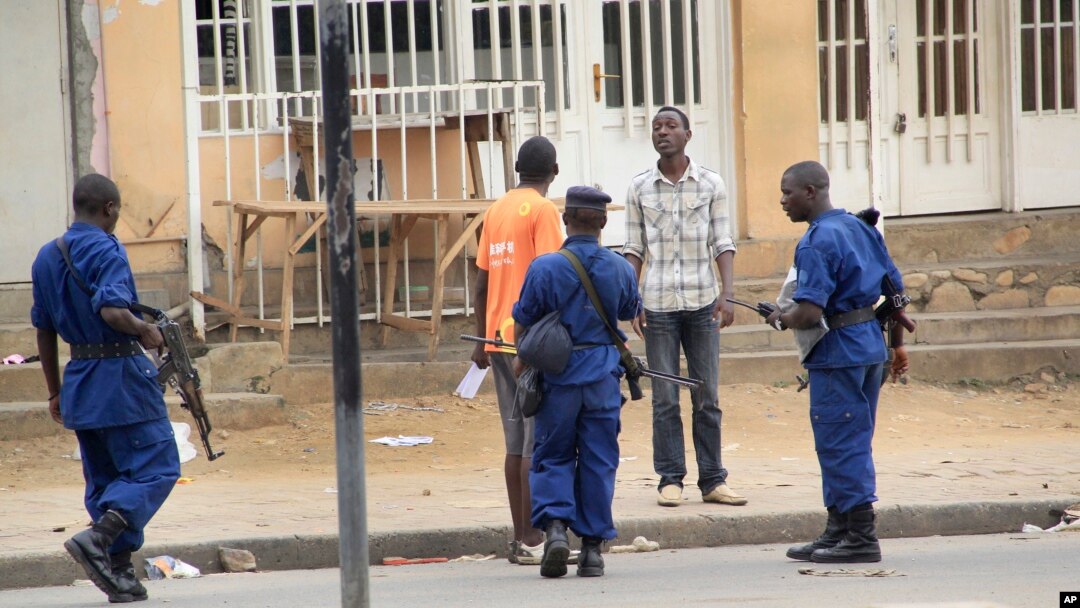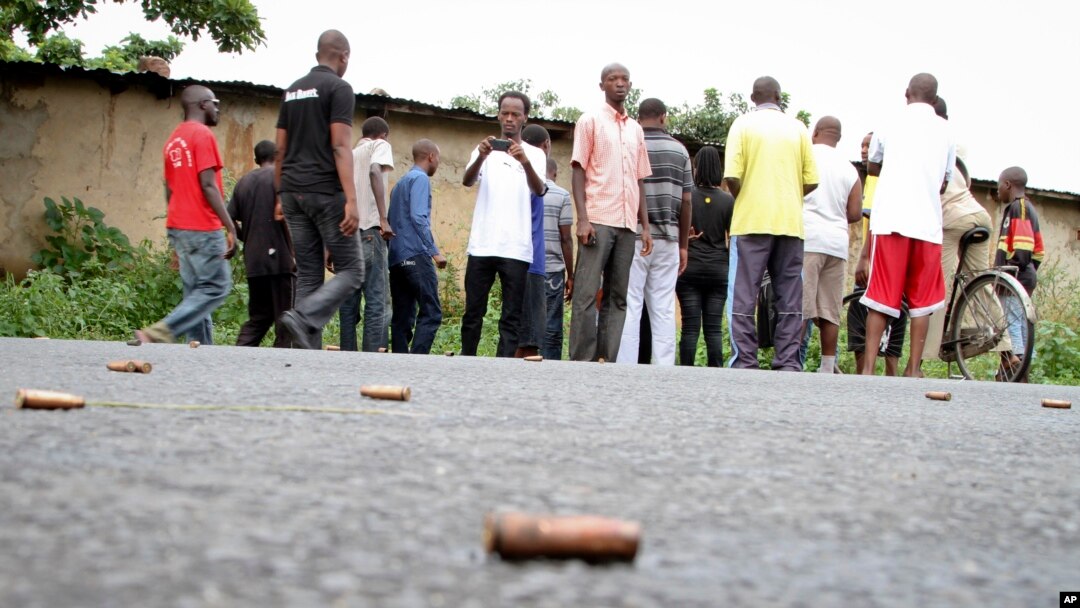The International Criminal Court says it is opening a preliminary probe into the violence that erupted last year in Burundi.
International Criminal Court prosecutor Fatou Bensouda says the probe is not an investigation and offered no timeline of how long it will last.
But in a statement announcing her decision Monday, she said she has been closely tracking the uptick of violence in the central African nation that has been a member of the Hague-based court since 2004.
“My office has reviewed communications and reports about killings, imprisonment, torture, rape and other forms of sexual violence as well as cases of enforced disappearances. Because all these acts appear to fall within the jurisdiction of the ICC, I have decided to open a preliminary examination into the situation in Burundi since April 2015,” Bensouda said.

FILE- Police arrest a man following grenade attacks in the capital Bujumbura, Burundi Wednesday, Feb. 3, 2016.
Burundi’s political crisis was triggered last year when President Pierre Nkurunziza ran for a disputed third term. Bensouda said at least 430 people have been killed, 3,400 have been arrested and more than 230,000 Burundians have fled the country.
Human Rights Watch International Justice Advocacy Director Geraldine Mattioli-Zeltner welcomed the ICC announcement, but said it is only a first step.
“We hope the announcement that it is opening a preliminary investigation in Burundi is really a wake-up call to those who commit or order these crimes to be committed that there will not be impunity anymore for grave human rights violations,” Mattioli-Zeltner said.
The United Nations last week accused Burundi’s security services of torturing and illegally detaining several hundred people this year. Last month, the European Union suspended aid to the Burundian government over the political crisis.
On Monday, a high-ranking general and his wife were reportedly killed while dropping their daughter off at school.
General Athanase Kararuza, an adviser to Burundi's vice president, was killed along with his wife and one of his bodyguards in the capital, Bujumbura, Monday. A military official said Kararuza's daughter was injured in the attack, which took place outside of her school.
U.N. Secretary-General Ban Ki-moon condemned the attack against the general, who had served with the U.N. peacekeeping mission in the Central African Republic.
Ban's spokesman, Stephane Dujarric, said, "All such acts of violence serve no purpose other than to worsen the already volatile situation in Burundi. The secretary-general urges that a rigorous and prompt investigation of these events is undertaken."
No one has claimed responsibility for the attack.
Violence between supporters of President Pierre Nkurunziza and his opponents began in April 2015 when the president announced he would run for what many viewed as an unconstitutional third term. Tit-for-tat attacks have taken place since then against politicians, civil society leaders and army officials.
VOA's Megan Duzor contributed to this report


